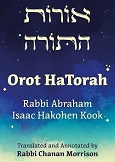
“Remember what Amalek did to you on your way out of Egypt. When they encountered you on the way, and you were tired and exhausted, they cut off those lagging to your rear, and they did not fear God. Therefore... you must obliterate the memory of Amalek from under the heavens.” (Deut. 25:17-8)
True Erasing
The Torah prohibits 39 categories of melachah — activities which are forbidden on the Sabbath. One is to erase writing. There are, however, different forms of erasing. Erasing merely to blot out what is written is a destructive act, and destructive acts are not forbidden on Shabbat by Torah law. Melachah is constructive activity, similar to God’s creative acts when forming the universe.
So what form of erasing is prohibited on the Sabbath? Mocheik al m'nat lichtov — erasing with the intention of writing again. One’s intention must be to clean the surface in order to write over the original letters. This type of erasing is a positive, constructive activity, and therefore is incompatible with the special rest of the Sabbath day.
Restoring God’s Name and Throne
Rav Kook explained that this principle may also be applied to the mitzvah of “erasing” Amalek. The mitzvah is not simply to obliterate Amalek so that there will no longer be any more Amalekites in the world. That would be a purely destructive act.
What then is the true mitzvah of destroying Amalek?
Amalek’s goal was to eradicate the nation which bears God’s Name in the world. Amalek could not tolerate the idea of a people with whom God made a special covenant, a people whose very existence implies ethical obligations and holy aspirations. The complete expression of the mitzvah to destroy Amalek is accomplished when we “erase in order to write.” It is not enough to wage war against Amalek. The destruction of Amalek must have a productive goal. We must obliterate Amalek, and all that this evil nation represents, with the intention of “transforming the world into a kingdom of the Almighty.”
As the Midrash explains:
“God’s Hand is raised on His throne: God shall be at war with Amalek for all generations.” (Ex. 17:16)
“Why is the word for ‘throne’ shortened, and even God’s Name is abbreviated?[1] God swore that His Name and His Throne are not complete until Amalek’s name will be totally obliterated.” (Tanchuma, Ki Teitzei 11; Rashi ad loc)
We are charged to replace Amalek with the holy letters of God’s complete Name. We must restore God’s complete throne — i.e., God’s Presence in the world through the special holiness of the Jewish people, who transmit God’s message to the world.
(Sapphire from the Land of Israel. Adapted from Mo'adei HaRe’iyah, pp. 241-242)
[1]The verse uses the word keis instead of the more common word kisei for ‘throne.’ And it uses the shorter, two-letter Name of God, as opposed to the regular four-letter Tetragrammaton.





